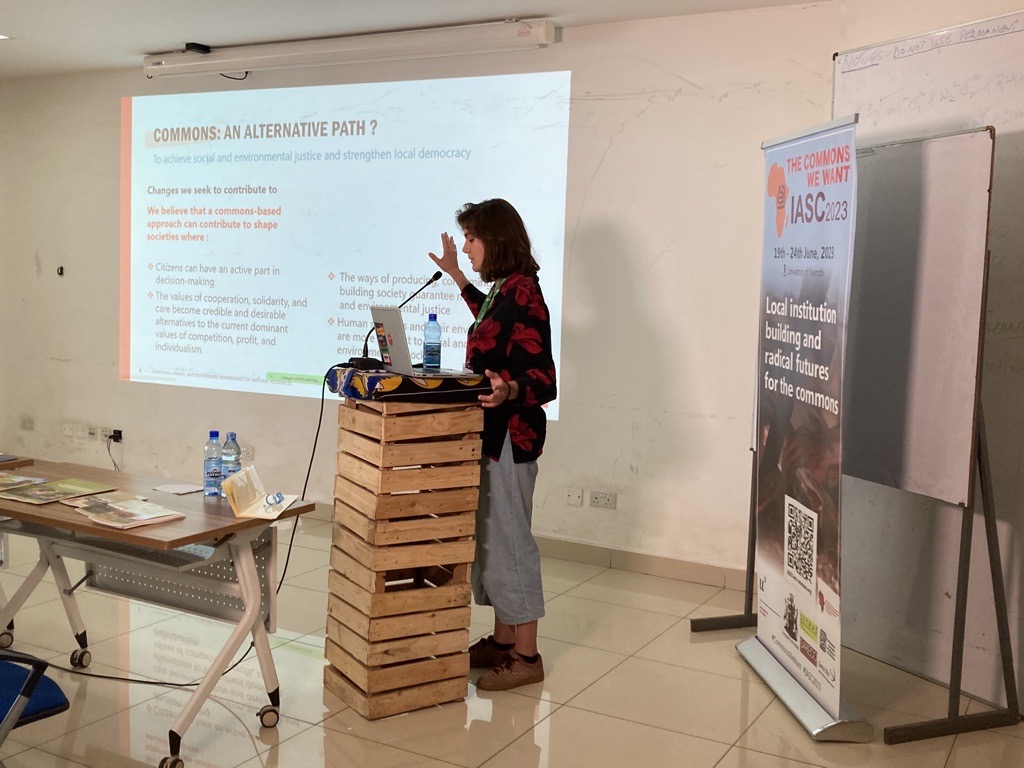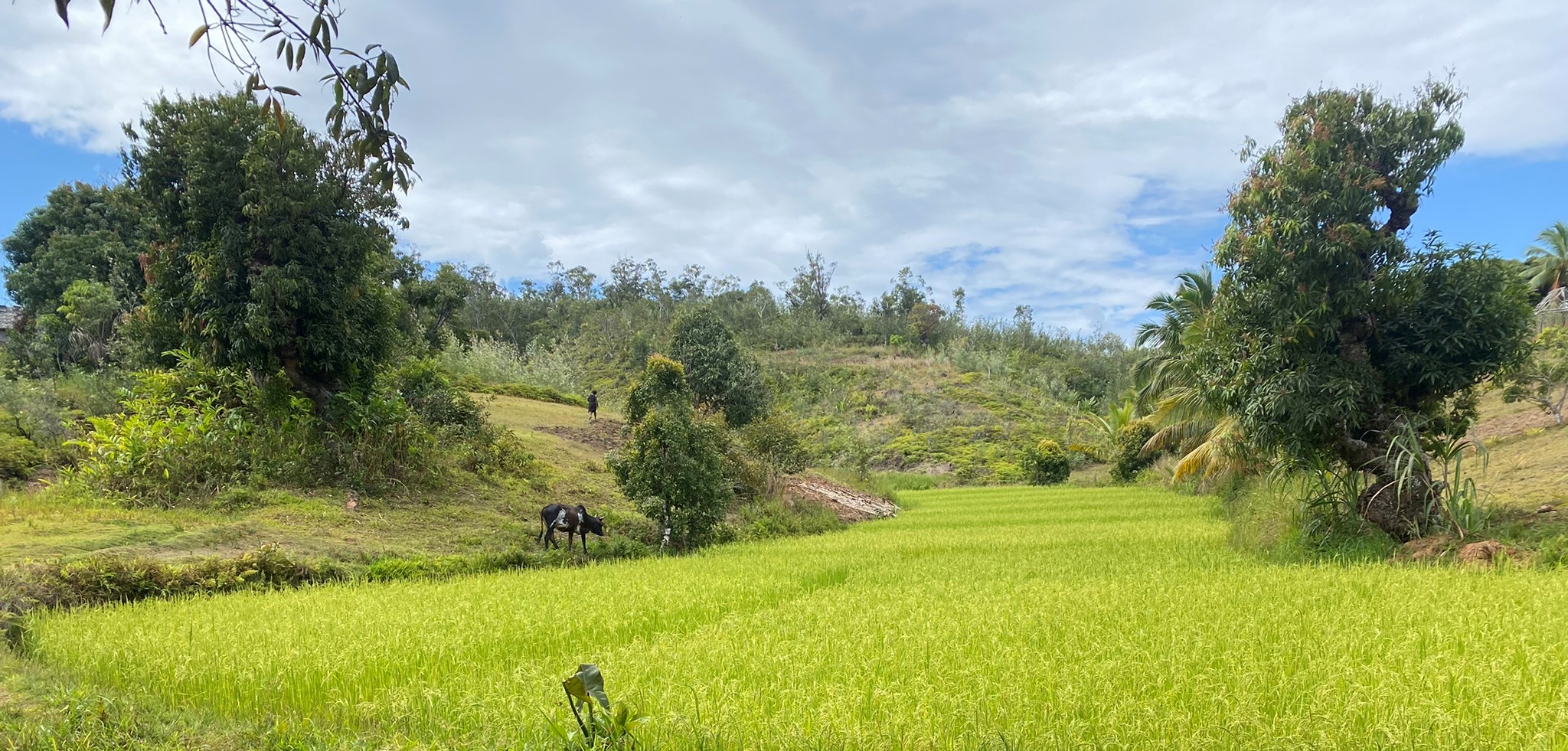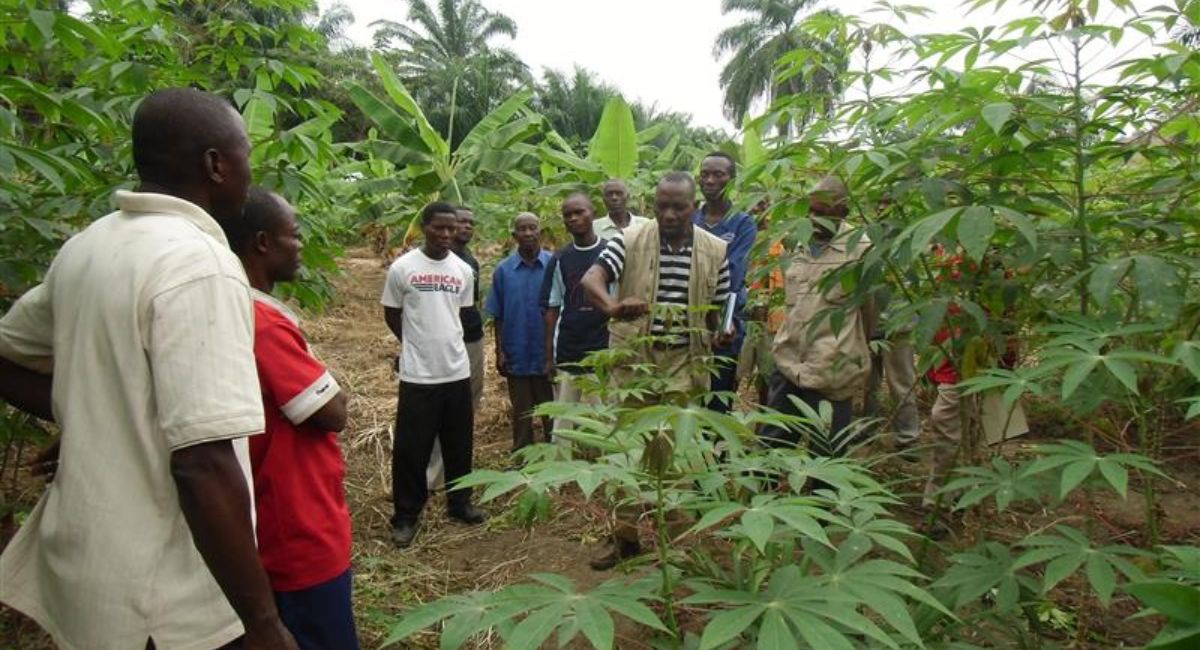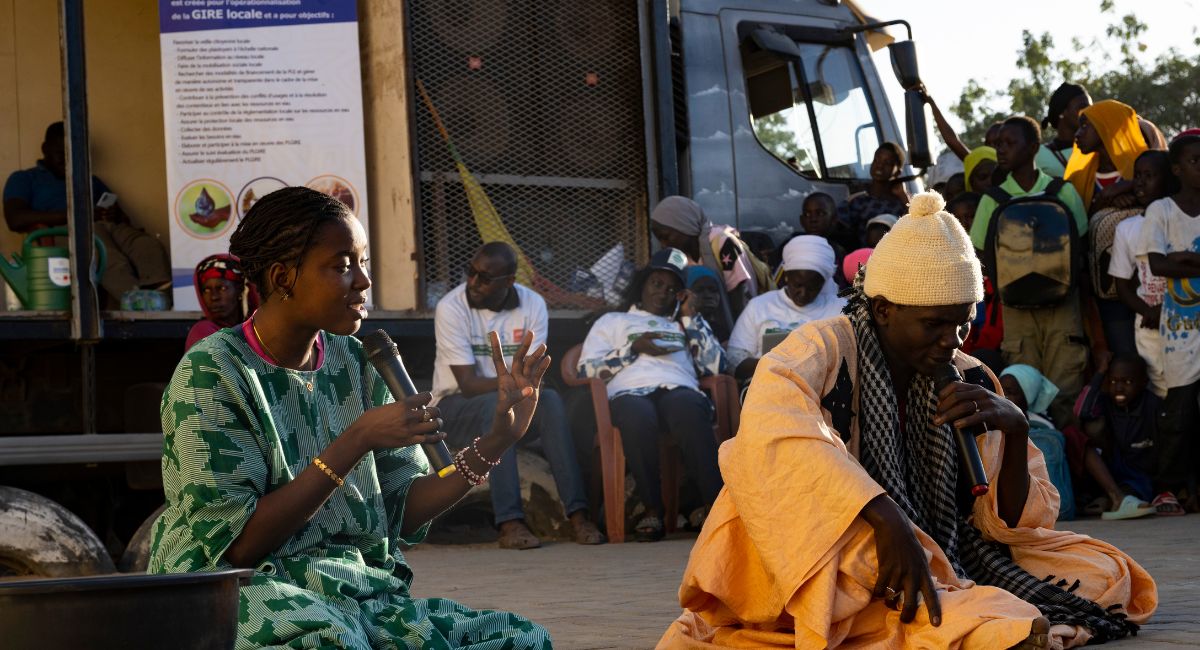From 19 to 24 June last, the biennial IASC [1] conference took place inNairobi. The central theme of this edition was “The commons we want: between historical legacies and future collective actions”. The objective was to illustrate the diversity of prospects and challenges for donors, NGOs and scientists in their work on the “commons”[2]. On this occasion, GRET, Cirad and AFD co-organised a session in order to share their experiences of commons-based approaches to territorial development. How do each of these institutions tackle the “commons”? How do they define a “commons-based approach”? We take a look back at the discussions that took place between these three organisations.
Solving complex social and environmental dilemmas
For Stéphanie Leyronas, head of research at Agence française de développement (AFD) – the only donor that attended the conference, the commons provide a framework for understanding collective practices in developing countries. The concept of the commons makes it possible to identify these practices and to inspire public stakeholders to solve complex social and environmental dilemmas. In this way, AFD is working to support local public entities that support the “commons”. Although the commons-based approach is generally positive for the institution, it nevertheless calls AFD’s management tools and methods into question. It is very difficult for a financial institution to support the commons without damaging them, due to the logic of economic, legal and political reasoning used in such an institution.
Four major challenges were identified in a joint publication released by AFD and the World Bank: take a step back from the hypothesis of uniformity of institutions to recognise diversity of practices; move from top-down observation to an integrated approach; transform a results-based culture into a support process; and, lastly, switch from “expert” knowledge to “plural knowledge”.
Taking diversity of practices into account in territories
Cirad, represented by Aurélie Botta and Etienne Delay, presented its work in favour of territorial commons-based cooperation. The specificity of the approach, which this French research institution has been developing with its partners for several years now, is that it focuses on interdependencies between users in territories, human or non-human, in order to promote social and ecological solidarity. The attention given to relationships, and not to the intrinsic nature of stakeholders, and the position of “diplomat”[1] in charge of looking after these relationships, are essential elements in their approach. These researchers underline five main areas in their work: offset the “project” logic by changing relationships between donors, researchers and local stakeholders; adapt the approach to the level of maturity of “commoning” in each territory; securing the commons by infiltrating public policies; question the viability of the dynamics we support; and, lastly, invest in so-called sensitive approaches such as the attachments approach. Aurélie Botta concluded her presentation with the following question: “How to incite partners to question the dominant thinking to move towards a more sensitive approach to living organisms, biodiversity, and relationships between humans and non-humans?”.
Cirad recently published a book in French on the commons in official development aid, entitled Les communs. Un autre récit pour la coopération territoriale (2022).

Co-constructing approaches with local stakeholders
Lastly, Louisa Desbleds, a PhD student and action-research coordinator at GRET, presented the “Commons and shared governance programme”. Since 2019, with the support of AFD, GRET has been mobilising various branches of the commons to understand and respond to social and ecological emergencies in some fifteen action situations. This requires constructing an operational framework in a process of toing and froing between theory and practice. GRET positions itself as a politically committed facilitator. The objective is to co-construct approaches with local stakeholders, fostering the conditions necessary for collective dialogue, action and learning between social stakeholders. One of the programme’s specificities is that it works on a diverse range of practices: natural resource management in Madagascar, Senegal and the Democratic Republic of Congo; essential services in Laos and Congo-Brazzaville; and urban markets in Haiti.
Critical reflections within GRET made it possible to identify the commons as a source of inspiration for alternative paths to classic official development aid tools and models, while issuing risk warnings on standardisation.
The challenges entailed in adopting the commons in aid policies
Sharing the majority of the challenges expressed, the speakers underlined other points of consideration when adopting the commons in aid policies. In particular, the central issue of adjusting project constraints and official development aid mechanisms to iterative and participative approaches. Evolution of public policies to recognise and protect the commons is also crucial. Lastly, the need to build links between initiatives in the Southern and Northern hemispheres was raised, with the idea that the entities attending the session have a role to play in this networking.
In conclusion, these discussions showed the convergence and complementarity of observations and questions between donors, practitioners and researchers, and the as yet exploratory dimension of these commons-based approaches.
[1] International Association for the Study of the Commons
[2] The concept of the commons was propelled in 2009 when the Nobel Prize for Economics was awarded to Elinor Ostrom, a key American political scientist. It regained popularity in French development assistance some ten years ago.
[1] Expression borrowed from Baptiste Morizot’s book entitled Ways of being alive (2020)






